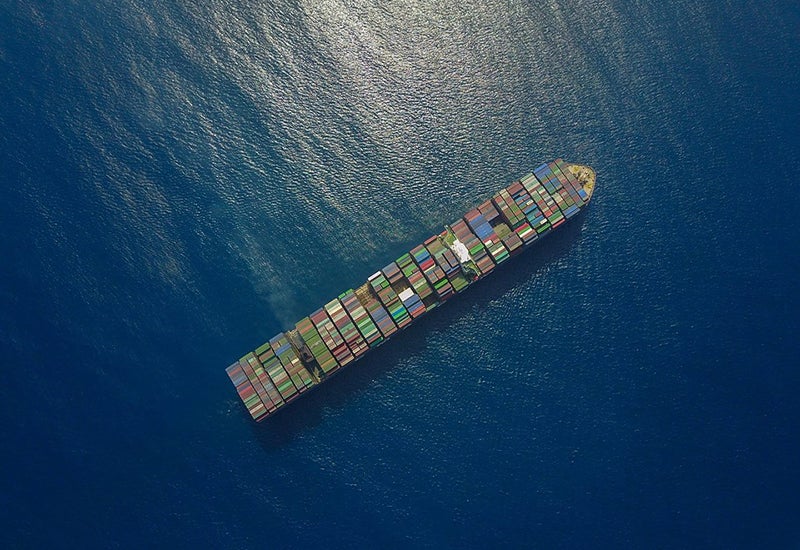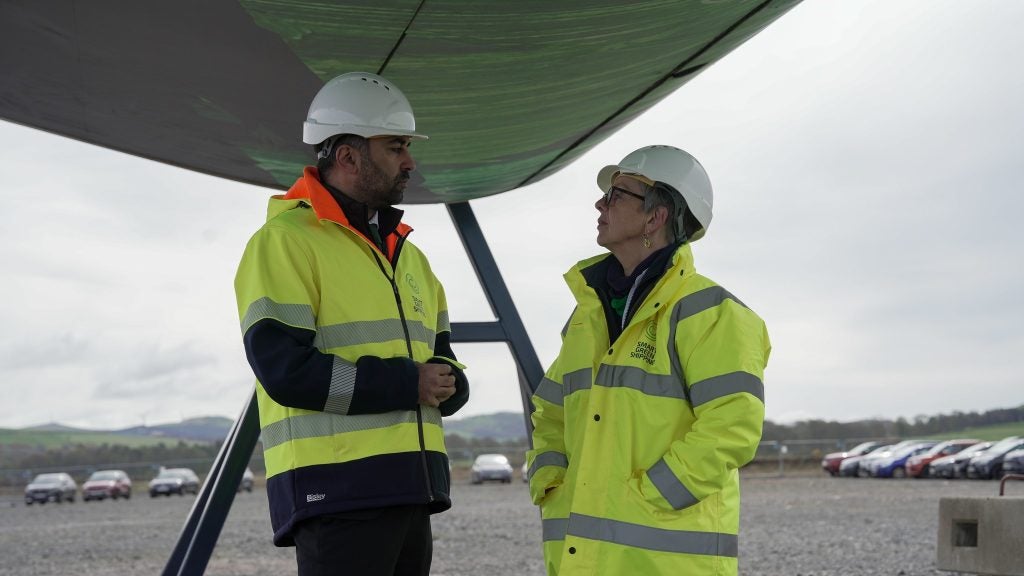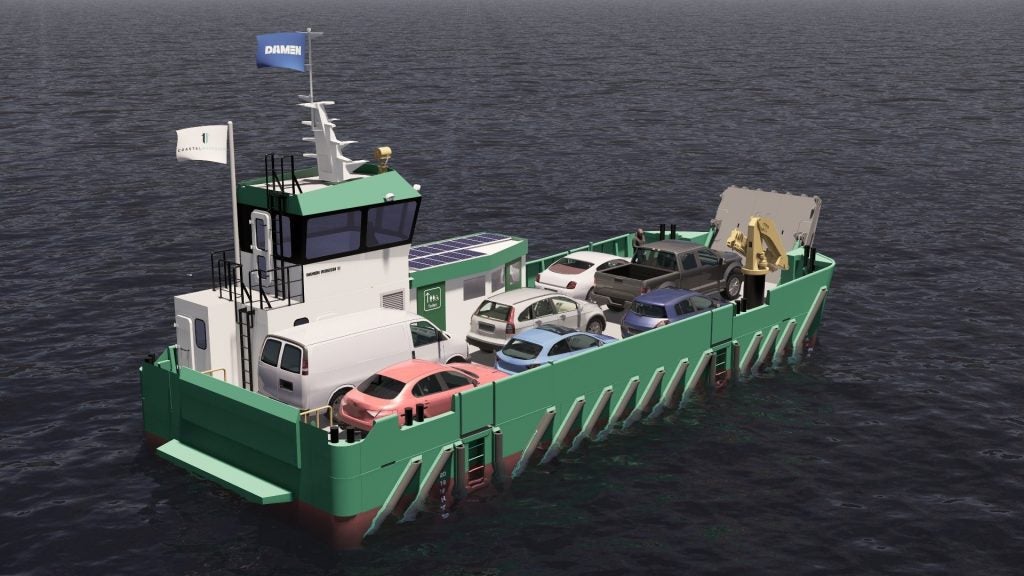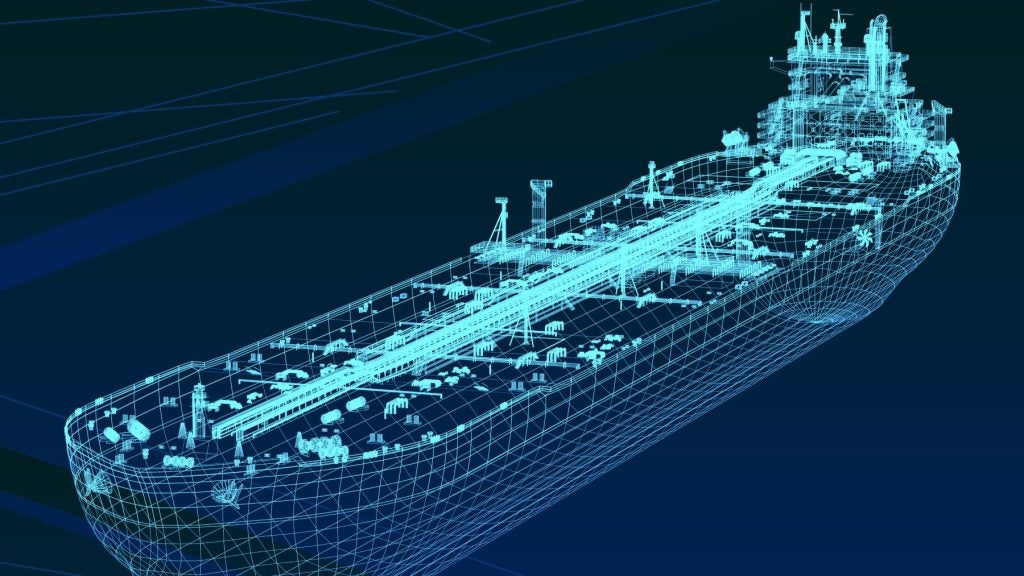
Technology has become the driving force across many industries and the maritime industry is beginning to embrace its advantages. Companies are now opening up to the countless benefits different technologies offer, and one such technology is cloud computing.
Cloud computing services make operations, communications and collaboration easier for workforces across the planet, according to Hanseaticsoft managing director Alexander Buchmann, and could therefore be a vital tool to shipping companies.
It’s of no surprise that more shipping businesses are now more willing to use cloud-based systems. Cloud computing, through which staff can access operations software on any computer with a web browser, reached a market value of $106bn in 2017.
Research by Hanseaticsoft said that 25% of daily working time can be saved by using cloud fleet management software, which would be otherwise wasted requesting, looking for and validating data.
Buchmann believes that the technology solves a major problem facing the maritime industry because it facilitates increased ship capacity without requiring expensive infrastructure investments, or personnel training.
Varsha Saraogi (VS): Why is the shipping sector slow in embracing technology?
Alexander Buchmann (AB): Ship managers are not letting go of the old process because they are afraid. We’re talking to companies to sell our software and they said ‘we have our software which has been working well for 15 years’. They don’t understand that actually, they could save a lot of money by cutting down staff. Honestly, we cannot help you if your mindset doesn’t change, or if you use software like you did in the past.
How well do you really know your competitors?
Access the most comprehensive Company Profiles on the market, powered by GlobalData. Save hours of research. Gain competitive edge.

Thank you!
Your download email will arrive shortly
Not ready to buy yet? Download a free sample
We are confident about the unique quality of our Company Profiles. However, we want you to make the most beneficial decision for your business, so we offer a free sample that you can download by submitting the below form
By GlobalDataThe change to using modern technology has to be management driven. If you go into a company and show these modern systems to the employees, a lot of them realise that they will not be needed anymore. There’s no better benefit for the employee to get new software. So management has to become much more involved in these decisions.
Ship managers should hire consultants who will help them streamline the entire digital process. Most of the people are still doing the same job as they did ten years ago and managers who don’t embrace technology and use the cloud will just be left behind.
VS: How do you see ship management changing in the next few years?
AB: I think, the shipping industry will get a little bit more streamlined, which means that it will be possible in the future to manage ships with less crew and with fewer employees in the offices.
Many companies just want to jump on the bandwagon and do something digital, but they don’t know what. Shipowners are harbouring a fear of missing out and therefore are looking to invest in technology. So companies tell us that they want to invest, but don’t know why and where. It’s essential to understand that through technology, they can reduce their operational costs (opex) and streamline the business. Fewer people will be required in the office and that’s a key point to cutting cost.
You cannot just buy a software and then hope that operations get smoother. You also have to rethink the entire process of ship management. How can you use new technologies? What we need to do and what don’t we need to do anymore. Companies need to do that to make money because profit margins today aren’t that great.
For example, by having your data in the cloud, you could outsource tasks such as ship inspection and have the test results uploaded into the cloud instead of sending those via email. Emails are no longer the best way to communicate within the company as it is error-prone. That’s just what you did in the 1990s.
Another change we will see is that shipowners will require employees who specialise in data and technology. If your job all day is just sending out emails, forwarding information from one point to the other, you will not be needed anymore so you need to have a different set of skills. This could be a data analyst who looks at all the data, to figure out what needs to change in the ship etcetera.
VS: What are some of the challenges facing the shipping sector?
AB: The shipping industry is very fragmented because there are so many people involved. While many are starting to use technology, the industry is progressing rather slowly. The issue is that there’s no real platform to collaborate on.
Firstly, it’s important to collaborate within the company and ensure that people are not working on different kinds of data. Shipowners then need to ensure there is collaboration with the crew on board, which is hard if you don’t have the correct kind of software. But if you can get access to an application in a browser, an agent can log in and see where the vessel is heading, when it will arrive at the destination, who’s the captain, and therefore it becomes much easier to operate.
It’s not just about investing in technology and hoping everything will change. It’s also changing the way management it’s done. What we’ve seen is that companies are buying our software but want us to change it in a way that it works like the old software. They’ve been working with older systems for the last 15-20 years.
Looking ahead, the cloud is just the way to go. It’s like working with a smartphone, you get push notifications all the time. Ship operators are still printing reports, and then finding what they need to do but with modern systems like the cloud they will actually get notifications reminding them of the tasks at hand.
It all comes down to the willingness of ship managers to use technology. I think shipowners are more likely to embrace new technology because they see the financial benefits. But for a third-party ship manager – who might not operate a particular vessel in three months or six months’ time – the priority is to keep the opex down so they will not want to invest into software because in the short term, this will increase the opex.
VS: How will better connectivity and cloud solutions help shipowners in ship management?
AB: In the past, data synchronisation was a slow process and was done three or four times a day. As a result, the data packages had to be very small. But with 5G on board and a better internet connection, ships can have real-time data exchange with the office instead of sending out an email and waiting 12 hours for a reply.
Ship operators can see what is going on their machinery in real-time. Through mobile applications, superintendents can be alerted when a technician is coming on board, or when ships receive loadings of containers. This would be a complete game-changer because ship operators can monitor the ship from the office and assist remotely if something comes up.
VS: Are rising costs an obstacle for shipowners to invest in wireless connectivity on ships?
AB: It’s not that expensive anymore. In essence, it helps shipowners cut costs. The crew on board can use applications such as FaceTime or Facebook to stay in touch with their family. It might sound like a lot in the beginning but it’s a win-win situation.
VS: With the new IMO regulation coming into force last month, how can ships be more sustainable?
AB: Ships now try to monitor how much fuel is being used to comply with the regulations. However, for old vessels, it’s tricky to do so as they are not equipped with the relevant technology.
In my opinion, shipowners will need to look at alternative methods to run a ship. For instance, instead of diesel fuel using hydrogen will be beneficial in the long run.
With respect to IMO’s sulphur cap, many ships are resorting to open-loop scrubbers which redirect the pollution being emitted in the air into the water. While in theory it makes sense, I thought it is completely nuts, and doesn’t make sense at all.
VS: How are autonomous ships going to progress in the next few years?
AB: For short term travel, autonomous ships can be used. But for a longer journey, many issues can happen. For example, onboard machinery has to be maintained. You can trial an autonomous ship for a two-hour journey but otherwise ships would require sensors on board. The biggest issue we have is the lack of standards so every vessel is different.
Everything has to work seamlessly on board and that means we need standards about machinery, and the right kind of equipment. When sailing across the Atlantic, a ship might get different kind of waves and witness tricky issues. An autonomous car on a flat street is one thing and dealing with huge waves, winds and streams is another issue. Ships will need experienced people on board. A vessel consists of so many parts which supply for different manufacturers. How can you ensure they work seamlessly? I think it will take another 10-15 years until we start talking about this seriously.
VS: How do you think they could be better standards for autonomous ships?
AB: It’s a really tricky question because actually, this comes down to collaboration between engine manufacturers and shipping companies who need to define those standards and maybe even get the IMO to take the lead.






